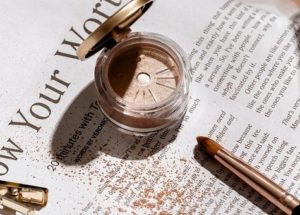Duane Morris attorney Kelly A. Bonner was quoted in an article in The Business of Fashion titled “What Beauty Needs to Know About the Biggest New Regulations in 80 Years,” about the Modernization of Cosmetics Regulations Act (MoCRA) recently signed into law. To read the full text of this article, please visit the firm website.
Post-MoCRA Regulatory Compliance Checklist for Beauty and Personal Care Products
MoCRA, Pub. L. No. 117-328, represents the first major statutory change to the authority of the Food and Drug Administration (FDA) to regulate cosmetics since the Food, Drug, and Cosmetics Act (FDCA), 21 U.S.C. § 361 et seq.,
in 1938 and the Fair Packaging and Labeling Act (FPLA), 21 C.F.R. § 701.3, in 1966.
This checklist outlines key regulatory compliance considerations that are specific to personal care products marketed in the United States following the enactment of the federal Modernization of Cosmetics Regulation Act (MoCRA) on December 23, 2022.
To read the full text of this Lexis Nexis Practical Guidance Checklist by Duane Morris attorneys Driscoll Ugarte, Rick Ball, Alyson Lotman, Kelly Bonner and Coleen Hill, please visit the firm website.
US FDA Seeks Head of Human Foods, Looks to Move Cosmetics Work
Duane Morris attorney Kelly Bonner was quoted in an article in Chemical Watch on March 3.
“The US Food and Drug Administration has started its search for a deputy commissioner for its new human foods programme, and plans to move certain cosmetics functions to another part of the agency to advance oversight of the products. […]
The inclusion of cosmetics in the proposed restructuring is “very significant”, said Kelly Bonner, associate with law firm Duane Morris. Continue reading “US FDA Seeks Head of Human Foods, Looks to Move Cosmetics Work”
Duane Morris Attorney Kelly Bonner Talks Cosmetics Regulations and More on This Week’s Episode of “Fat Mascara” Beauty Podcast
Join Duane Morris attorney Kelly Bonner as she discusses America’s complex system of cosmetics regulation on the award-winning beauty podcast, Fat Mascara, hosted by Jennifer Sullivan (beauty columnist, The Cut) and Jessica Matlin (beauty director, Moda Operandi).
Links to Episode 474: How Cosmetics Are Regulated, with Kelly Bonner, below
Congress Overhauls FDA Cosmetics Authority in Year-End Appropriations Bill
On December 23, 2022, Congress significantly expanded the FDA’s regulatory authority over cosmetics as part of its year-end Consolidated Appropriations Act of 2023, the first major statutory change to the Food, Drug and Cosmetics Act regarding the regulation of cosmetics since 1938. Passed with bipartisan support and garnering industry approval, the Modernization of Cosmetics Regulation Act contains a number of key provisions, requirements and dates for compliance.
To read the full text of this Duane Morris Alert, please visit the firm website.
FDA To Host Day-Long Public Forum On Asbestos-Contaminated Talc
On January 9, 2020, the U.S. Food and Drug Administration announced that it will host an  all-day public forum to discuss testing methods for asbestos in talc and cosmetic products containing talc on February 4, 2020.
all-day public forum to discuss testing methods for asbestos in talc and cosmetic products containing talc on February 4, 2020.
According to the FDA, the purpose of the meeting is to discuss testing methods, terminology, and criteria that can be used to characterize and measure asbestos, as well as what the FDA preliminarily states may be “other potentially harmful elongate mineral particles (EMPs)” that may contaminate talc and cosmetics products that contain talc.
Continue reading “FDA To Host Day-Long Public Forum On Asbestos-Contaminated Talc”
The Spa Industry Will Find Offering CBD Products Can Be Tricky
Duane Morris associate Kelly Bonner shares legal insight on CBD products and services in the January issue of DaySpa magazine.
From the publication:
- Consider the source. CBD can be derived from both hemp and marijuana, which have different definitions in U.S. law and are subject to different statutory and regulatory requirements. Hemp-derived CBD products are not illegal to sell and possess under federal law, as long as they contain no more than 0.3 percent tetrahydrocannabinol (THC). Marijuana has more than 0.3 percent THC, and is a Schedule I controlled substance under the federal Controlled Substances Act.
- Get proof. Given the current lack of federal testing requirements for CBD products, it can be difficult to ensure that those purchased from third-party vendors contain no more than the permitted level of THC. So it’s extremely important that spas get anything containing CBD from a trustworthy supplier who can verify ingredients, confirm THC levels with third-party labs and/or provide certifi cates of analysis.
- Act locally. While the 2018 Farm Bill lifted the federal ban on the commercial cultivation of hemp and derivatives that contain no more than 0.3 percent THC, the ability to manufacture, market and sell CBD products is still heavily regulated at the state level, and changing rapidly.
- Make no promises. The U.S. Food and Drug Administration (FDA) has issued warning letters to a number of CBD companies that have touted their products as having certain health benefi ts in their promotional materials and on packaging or websites. Spas should ensure that any products or services offered don’t come with false or misleading claims.
- Handle with care. Although research into the risks of CBD use is ongoing, the FDA has noted potential adverse health effects linked to the use of cannabis products containing THC by pregnant or lactating women. Even though CBD topicals typically contain very low levels of THC, spas should be up front with clients about potential risks.
To read the full text, read the January issue of DaySpa magazine.
